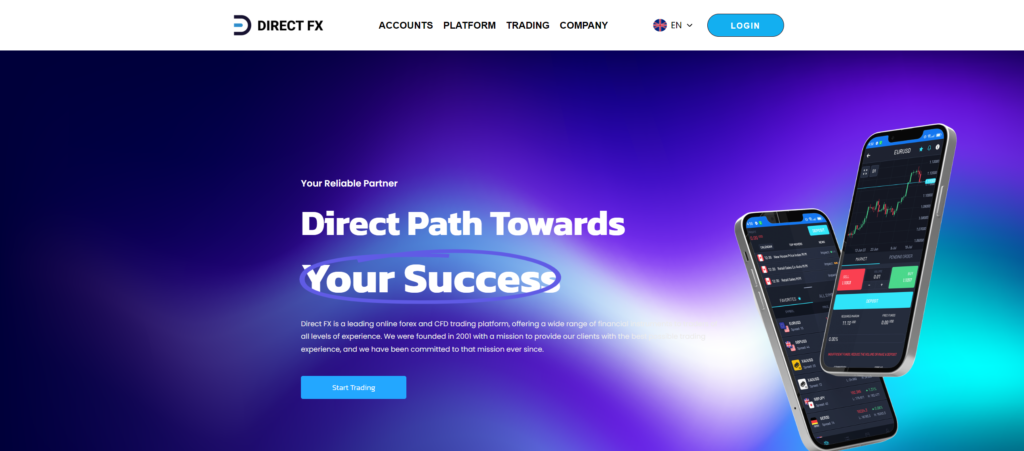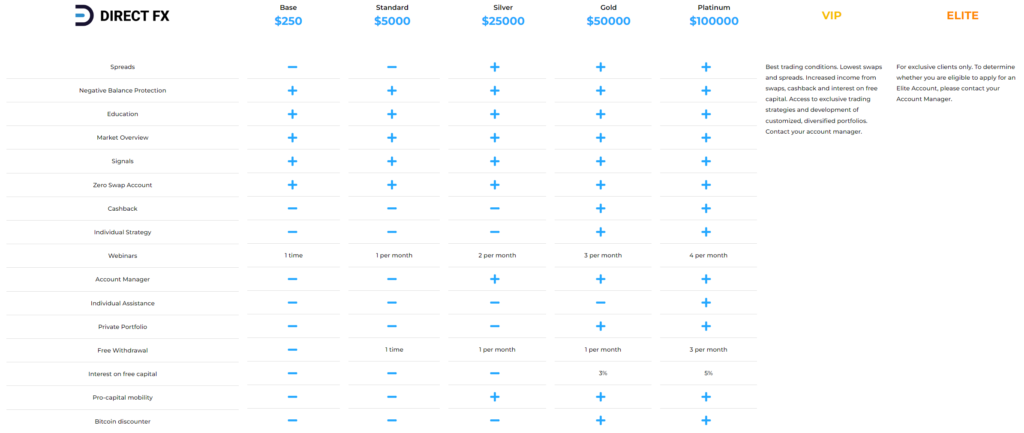Direct FX Broker Review
Direct FX, operating under the DirectFX brand in the American Economic Area, presents itself as a stalwart in the brokerage industry, tracing its roots back to its establishment in 2001.
Positioning itself as a beacon of reliability, Direct FX offers a comprehensive suite of trading solutions, Direct FX grants access to an extensive array of financial instruments, advanced trading platforms, and expert market analysis tools.

However, despite its outward appeal, a closer examination of Direct FX reveals potential drawbacks that could impact the trading experience of investors. From regulatory considerations to account types, platforms, training, and commissions, a thorough evaluation is imperative to provide a comprehensive understanding of Direct FX’s offerings.
Regulation and Security
Regulation and security are paramount considerations when selecting a brokerage firm, ensuring the safety of investments and providing recourse in case of disputes. Unfortunately, Direct FX Solution presents a concerning deficiency in this regard, as it lacks regulation by any respected financial authority.
The absence of oversight from reputable regulators such as the SEC, FCA, and ASIC raises significant red flags.
Without the oversight of reputable regulatory bodies, investors utilizing Direct FX Solution are left exposed and vulnerable. In the absence of regulatory protection, there is limited assurance regarding the safety of funds and the integrity of the trading environment.
Trading Conditions and Instruments
DirectFX claims to offer a diverse range of financial instruments and attractive trading conditions, but the lack of specific details and regulatory clarity raises doubts about the authenticity of their promises. Key trading parameters such as spreads, commissions, and available assets are not clearly outlined on their website, hindering clients’ ability to make informed decisions. Additionally, the absence of information regarding licensing and regulation leaves clients uncertain about the legality and security of their investments with DirectFX.
Account Types
Direct FX offers various account types to cater to the needs of different traders, but the conditions of these accounts may be confusing and not always clearly reflect real benefits for clients, potentially leading traders to select an account that doesn’t best suit their requirements. Additionally, Direct FX’s trading platform options are limited, with only one platform available – Web Trader. This lack of platform diversity may restrict traders’ trading capabilities, as the offered platform may not possess the necessary flexibility or functionality required by modern traders.

Pros and Cons
Direct FX, despite its drawbacks, offers several advantages, including a diverse range of trading instruments and user-friendly interfaces on some platforms. However, it faces notable disadvantages:
Pros:
- Variety of trading instruments: Direct FX provides access to a wide range of financial instruments, allowing traders to diversify their portfolios and explore different markets.
- User-friendly interface: Some of Direct FX’s platforms feature intuitive interfaces, enhancing the trading experience for users and facilitating efficient navigation.
Cons:
- Lack of clear regulatory information: Direct FX fails to provide transparent information about its regulatory status, raising concerns about the safety and legality of its operations.
- Confusing account conditions: The terms and conditions of Direct FX’s various account types are convoluted, making it difficult for traders to discern the real benefits and choose the most suitable account.
- Limited platform functionality: Direct FX offers only a single trading platform, potentially limiting traders’ capabilities due to the lack of advanced features and customization options.
- Underdeveloped educational resources: Direct FX’s educational sector is insufficiently developed, leaving traders with limited access to learning materials and resources to enhance their trading skills.
- High commissions and hidden fees: Direct FX imposes high commissions and may levy hidden fees, increasing the overall cost of trading and potentially reducing traders’ profitability.
Conclusion on Direct FX
In conclusion, Direct FX presents itself as a brokerage firm with both strengths and weaknesses. While it offers a diverse range of trading instruments and some user-friendly platforms, it falls short in several key areas. The lack of clear regulatory information raises concerns about the security of client funds, while confusing account conditions and limited platform functionality hinder the trading experience. Additionally, the underdeveloped educational resources and potential for high commissions and hidden fees further detract from Direct FX’s appeal. Ultimately, traders should carefully weigh these factors and conduct thorough research before entrusting their investments to Direct FX.



